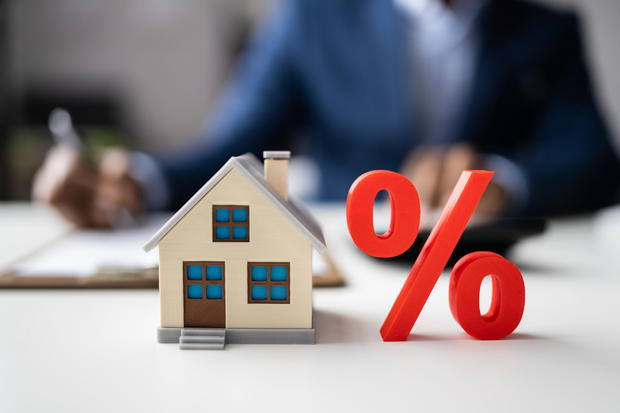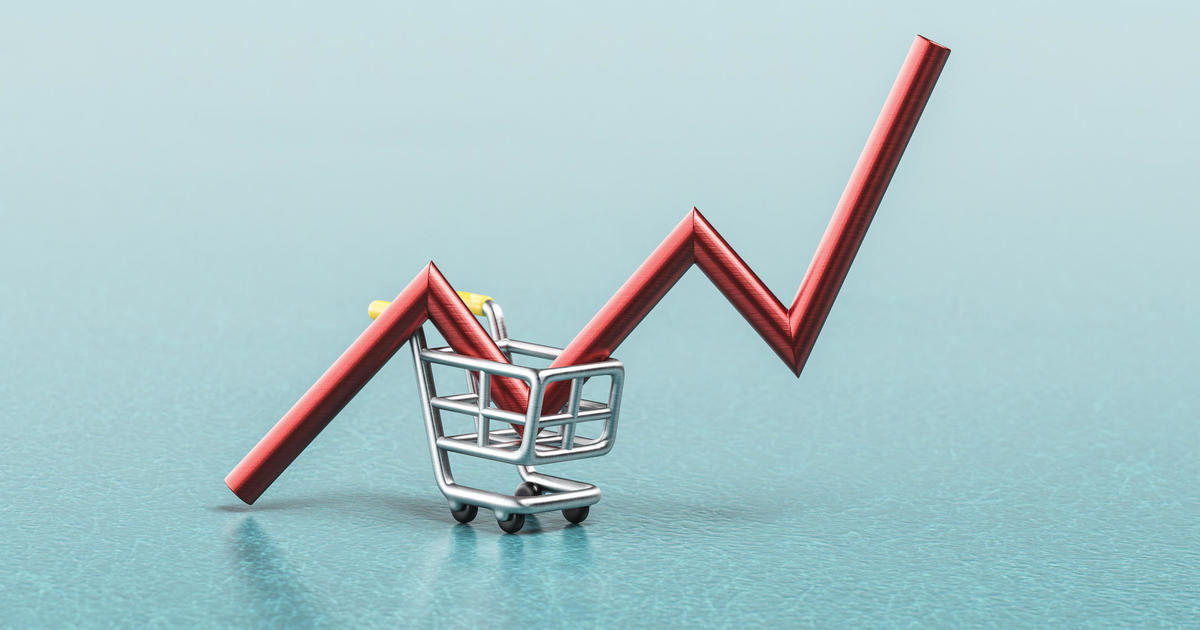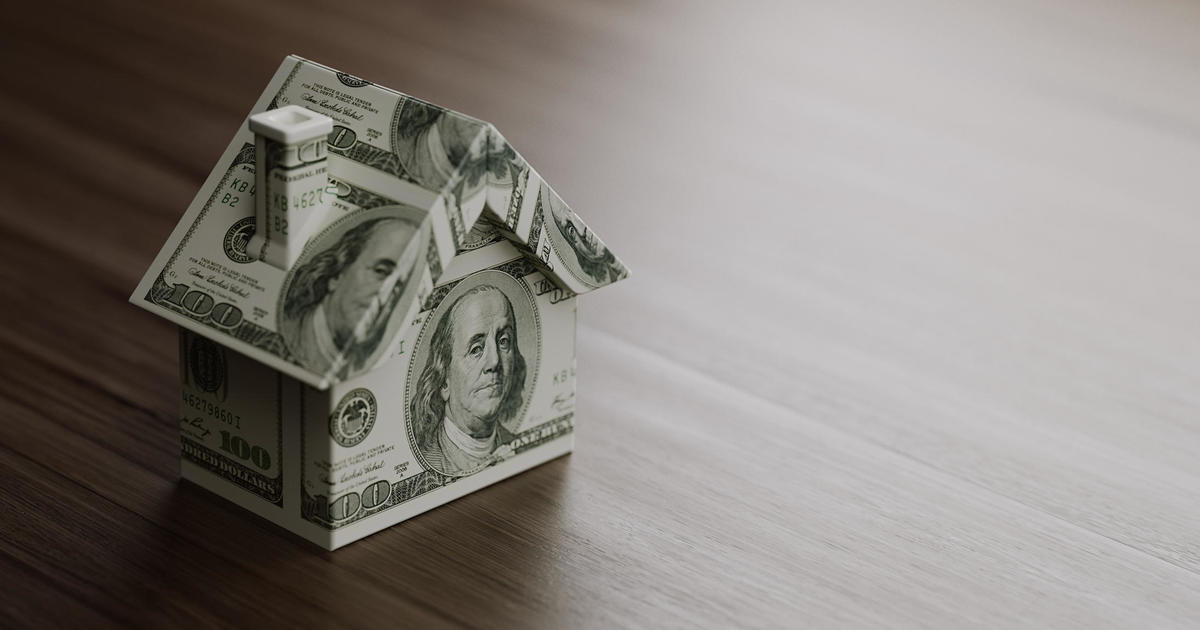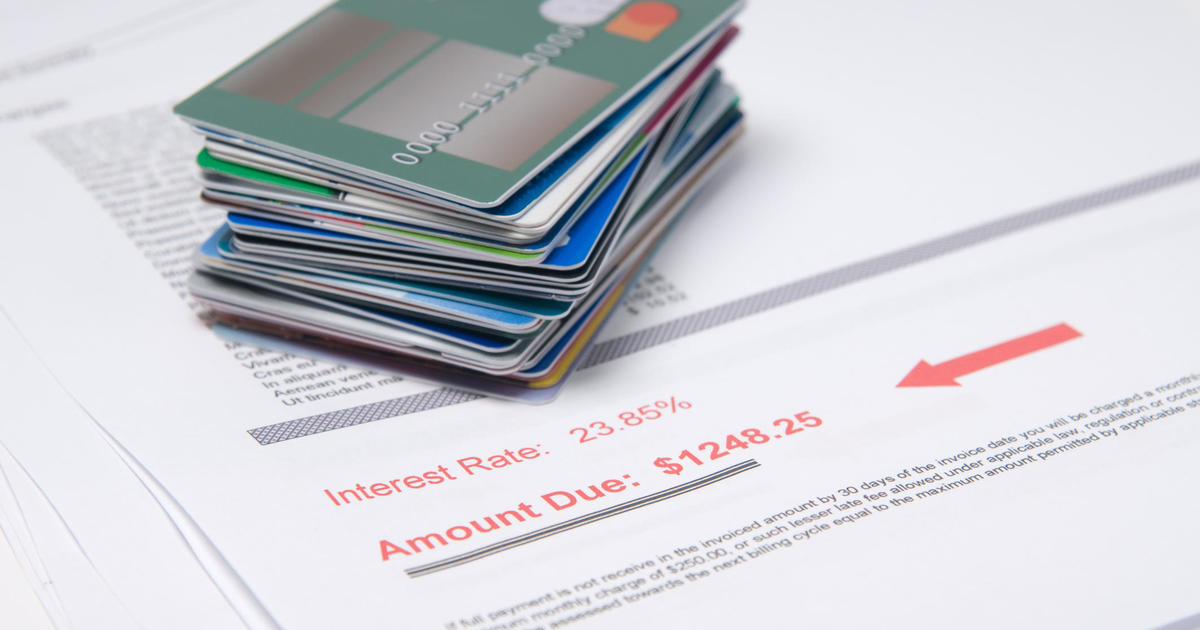3 factors influencing mortgage rates - and what to do about them
If you're in the market for a new home, there are many things to keep in mind. While you may have plenty of items on your wish list, your goal ultimately comes down to finding a house you'll love in the right neighborhood at a price you can afford. And one of the biggest factors that affect affordability is how much a mortgage will cost.
Mortgage interest rates have been high for some time now. As of July 21, 2023, Bankrate reports that the average rate for a 15-year mortgage is 6.30%, while the average rate for a 30-year mortgage is 6.88%. This is lower than last week's rates but still nowhere near where homeowners would prefer. And experts expect rates will go back up, potentially nearing 8% in the coming months.
Why is this, and what can homebuyers do to combat it?
See today's top mortgage rates here.
3 factors influencing mortgage rates
Three big things that have led to today's high mortgage rates are:
High inflation
"The most significant factor influencing today's current rates is the Fed's inflating-fighting rate hike campaign," says Peter Idziak, senior associate at Polunsky Beitel Green. "The Fed has raised the discount rate from near 0% to 5% over the last year and a half, which makes it more expensive for mortgage lenders to borrow. Banks and mortgage bankers have to pass these higher borrowing costs on to borrowers through higher mortgage rates."
Lower demand for mortgage-backed securities
Mortgage-backed securities (MBS) are assets that are bought and sold the same way stocks are. These securities are backed by a pool of mortgages, which investors buy from the issuing bank at a higher price than they lent out.
The more demand there is for MBS, the higher the prices go and the more money lenders stand to make, which enables them to offer borrowers lower rates. Recently, the demand for MBS is down, and banks have raised rates accordingly.
"Several factors go into what makes the buying of MBS an attractive option for investors, which includes things like the state of the stock market as it is a competing investment vehicle and economic factors like inflation," says Darren Tooley, senior loan officer at Cornerstone Financial Services. "Inflation causes interest rates to go up, which erodes the value of a bond, making it less attractive."
Prepayment risk
Banks make money from mortgages by collecting interest over the course of a borrower's repayment. When rates decrease — as they're expected to do by the beginning of next year — more borrowers refinance their mortgages to a lower rate.
This costs the bank the interest they would have earned if the borrower used the full repayment period. To recoup some of these losses, banks set higher mortgage rates.
Compare your mortgage options online now.
What homebuyers can do in today's high mortgage rate environment
While you can't do much to affect the overall economy and housing market, there are steps you can take to get the best rate possible today. These include:
Shop around
"According to the CFPB, almost half of all prospective borrowers only seriously consider one lender, potentially costing them hundreds of dollars a year," says Idziak. "Mortgage rates among lenders may vary as much as one-half of a percent, and some lenders may have lower fees than others, so potential borrowers should consider several lenders before committing to one."
Tooley agrees. "The most important thing someone can do to ensure they are getting the best mortgage possible is to choose the right lender to work with from the beginning," he says. "Potential homebuyers should speak with at least two or three different companies prior to making their decision on who they will hire."
You can get started by viewing current mortgage offerings here.
Make a larger down payment
Most lenders require a down payment of 20% of the home's purchase price, but some accept as low as 3%. However, the smaller your down payment, the more you'll pay over time, which can be especially costly in a high mortgage rate environment.
"Making a large down payment lowers the total loan amount and interest rate," Robert Esposito, director of sales at RelatedISG Realty, recently told CBS News. "It also makes you eligible for better loan terms or even to avoid private mortgage insurance altogether."
Consider an adjustable-rate mortgage (ARM)
One way to get around high mortgage rates is with an adjustable-rate mortgage (ARM). ARMs start out with a lower rate that lasts for a specific term, after which the rate varies based on current market rates. "ARMs are a good way to lock in a low rate for a fixed period of time," says Craig Toberman, CFA, CPA, CFP, Founder of Toberman Wealth.
That said, this isn't the best choice for everyone. Toberman continues, "[ARMs] are risky because once the fixed period expires, your rate could double or even triple. The key to success with an ARM is to try to estimate how long you will be in your new home. If you have a seven-year ARM, and you intend to sell your home and move within seven years, an ARM may be an excellent choice for you, especially in an environment like today where rates are rising quickly."
The bottom line
The economic woes of the past few years, largely driven by high inflation and the interest rate hikes designed to combat it, have resulted in high mortgage rates that are likely to stick around for a while yet.
Fortunately, there are things homebuyers can do to get the best rates and terms they can in the current interest rate environment. Shop around, compare your mortgage options and consider making a larger down payment, and you can still secure the house of your dreams without spending more than you need to.




